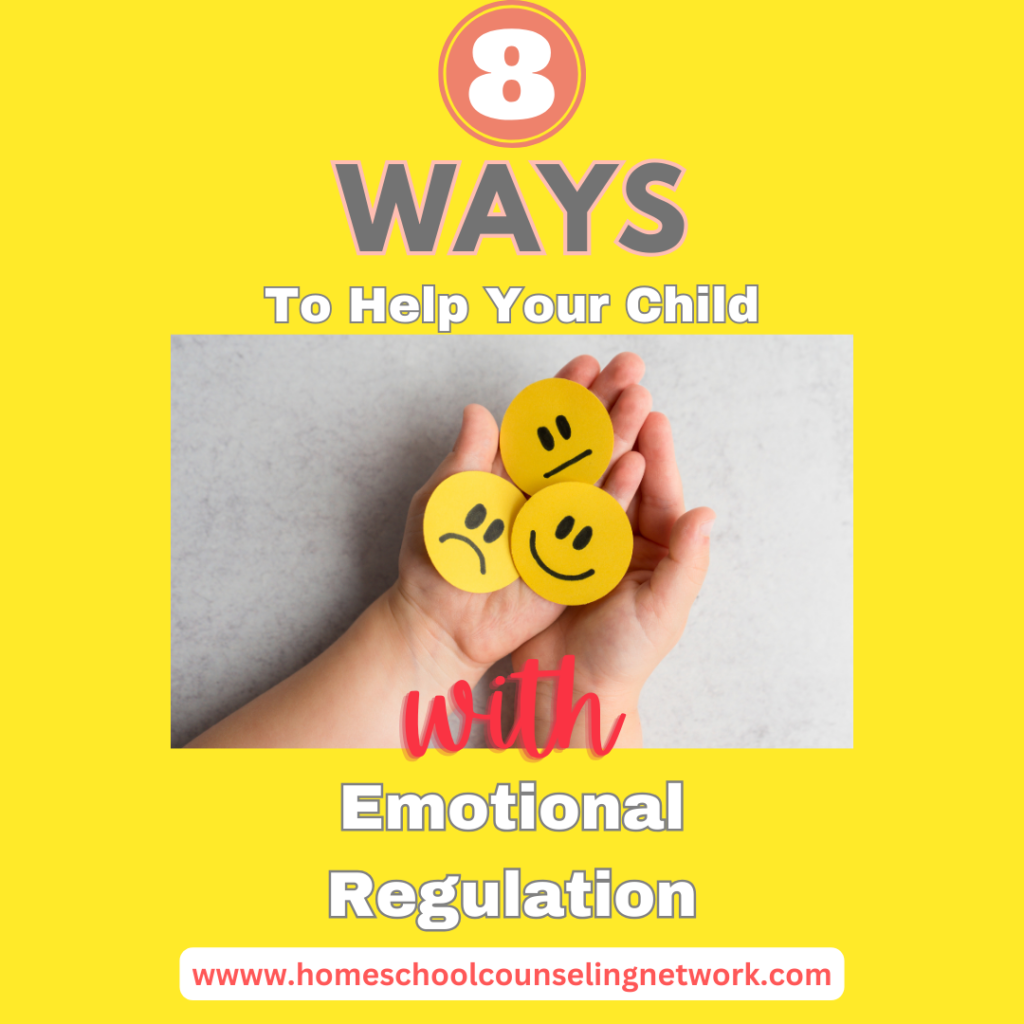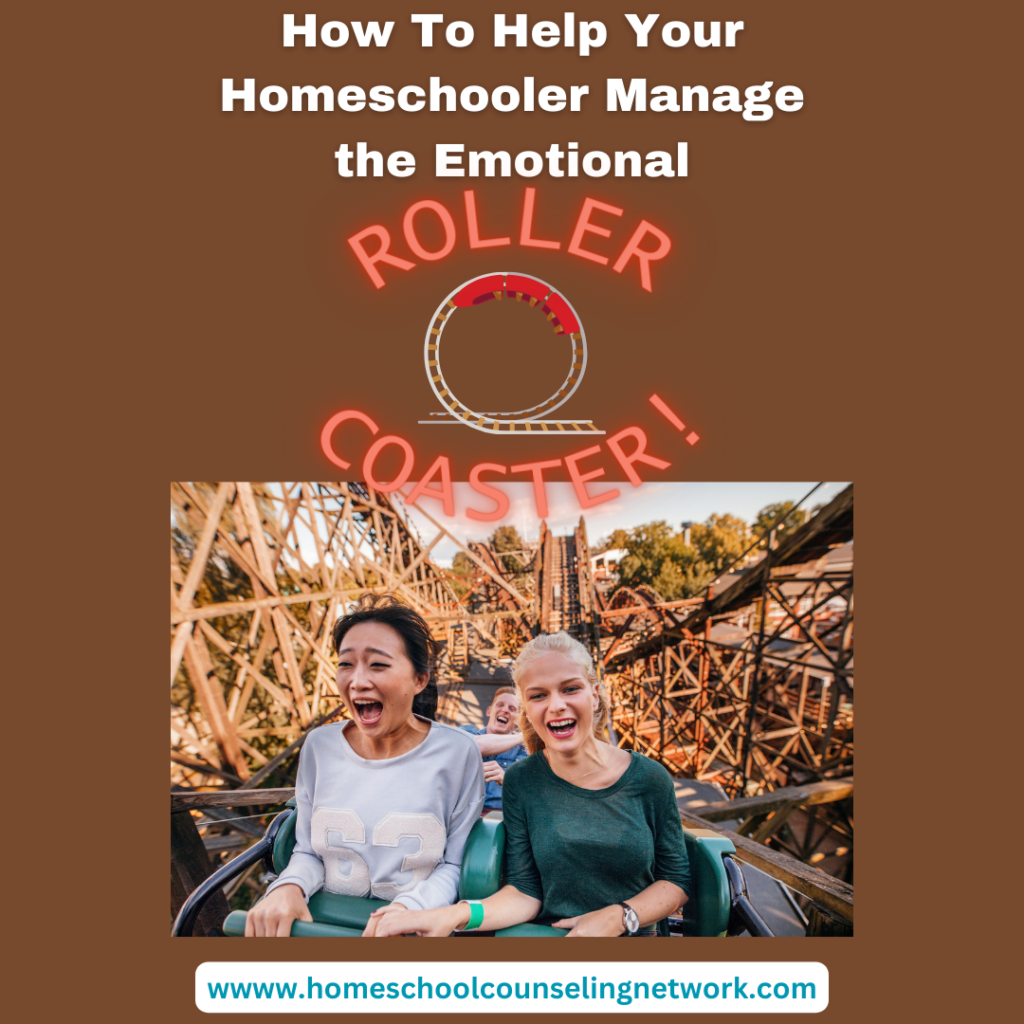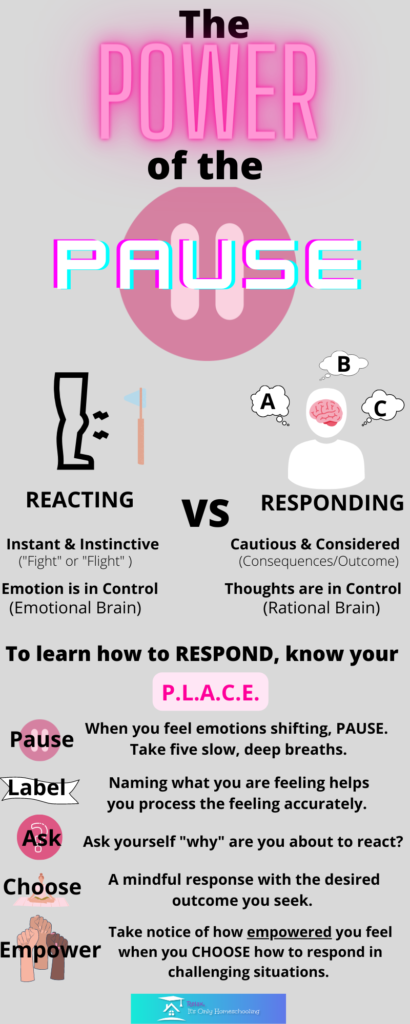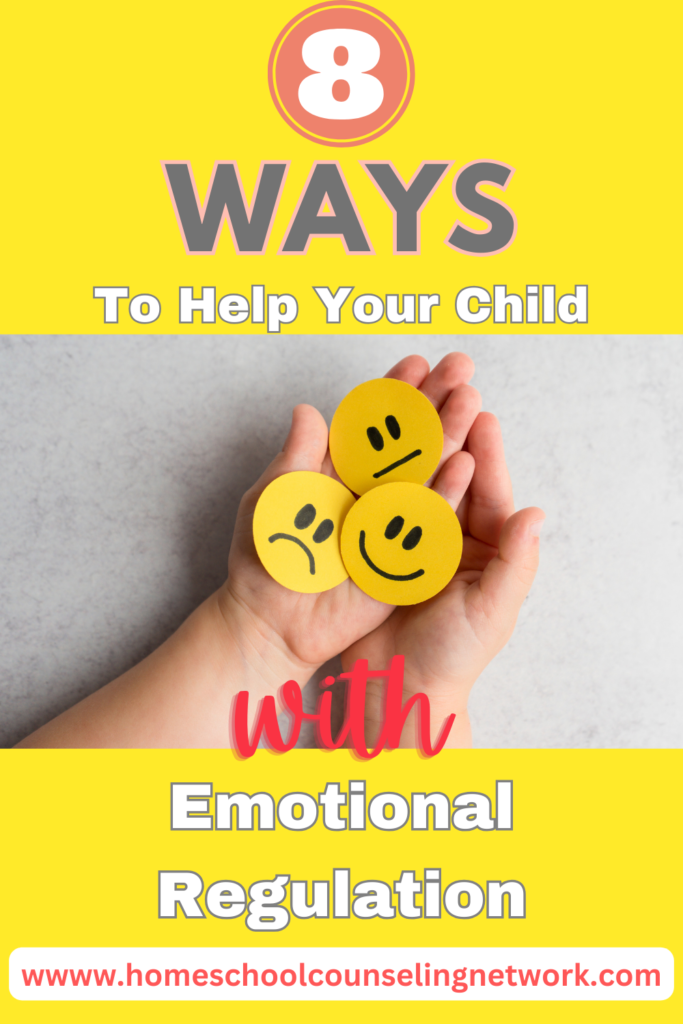Eight Ways to Help Your Homeschooler With Emotional Regulation

In previous blog posts, we talked about the emotional roller coaster of feelings and introduced you to the topic of emotional regulation, including what it is and what it is not. We discussed the purpose and function of feelings and the importance of making friends with feelings.

We also introduced you to one simple yet powerful technique to help you and your homeschool student manage BIG feelings, The Power of the Pause.

Today, we are going to lay the groundwork for an eight-part series to help you teach your child how to manage BIG feelings. Today’s post is an overview and an introduction.

Agents of Change
Learning new skills takes time. Just as I did when I was a therapist in private practice, I believe in giving new information in manageable bite-sized chunks. In this way, information can be taken in, read, and re-read if needed, pondered, and ultimately, processed.
More importantly, when that new information includes exercises, activities, or therapeutic techniques, bite-sized chunks allow for the crucial components for change to occur: awareness, acceptance, commitment, practice, and time.
Change is a funny and fickle creature.
Habits, too. Habits are like living, breathing things. They take on a life of their own and will fight to the DEATH to stay alive.
Think about the last time you tried to make a change. No, really.
Did your unhealthy habit go gently into that good night without a fight? Or did it rage against the dying of the light? 😉
Work In The Waiting
Over the next eight blog posts, I will share with you Eight Ways To Help Your Child With Emotional Regulation.
If you are groaning inwardly as you read this blog post, scanning frantically through the headers and searching fruitlessly for some hot tips to help you immediately tame your child’s (or depending on the day your own) meltdowns, do not fret.
I see you.
Most days, I am you.
Yes, the secret is out. Therapists are not therapists when it comes to their children.
Sometimes we yell. We cry. We worry. We make poor decisions. We hold on to unhealthy habits.
We eat ice cream in the dark sitting alone on the floor of our pantry after 9 pm once our child has gone to bed all the while pondering whether or not the measure of our mistakes will result in a lifetime of misery for our child.
And then we brush our teeth, say our prayers, and go to bed. We pray for strength. We pray for forgiveness. We pray for guidance.
We wake up the next morning and strive to do better. We make amends. We learn. We grow.
We also assure our child that they will not end up in therapy for the same reasons we ended up in therapy. They’ll be there for entirely new ones.
I share all of this with you now to say this, there is work in the waiting.
Powerful work. Deep work. Foundational work.
With each upcoming blog post, a new technique or tip will be revealed. Take your time with each one. Learn them. Practice them on yourself before you attempt them with your child.
Trust me, we all can benefit from these techniques. I use them on myself and as well as with my child. Sometimes, it is my child that is reminding me to use them.
Coming Up
In upcoming blog posts, we will explore Eight Ways To Help Your Child With Emotional Regulation. These tips will include practicing grounding, deep breathing exercises, being a detective, and even some tips for ways to play with your child to help them self-regulate just to name a few.
Keep In Touch
Be sure you do not miss a blog post by signing up for our email list, liking our Facebook, Instagram, Linked In, or Pinterest pages, or subscribing to our YouTube channel.
Like what you see here? Sharing is caring!
Blessings,
Kimberly Bennett, LPC
Founder/CEO, It’s Only Homeschooling
Founder/CEO, The Homeschool Counseling Network

This website is not a professional counseling website and nothing here should be construed as professional counseling advice. Although Kimberly Bennett, LPC is a Licensed Professional Counselor, she is not your counselor, and no counselor-client relationship is established unless she has signed an agreement with you. All information provided through this website is for informational and educational purposes only.